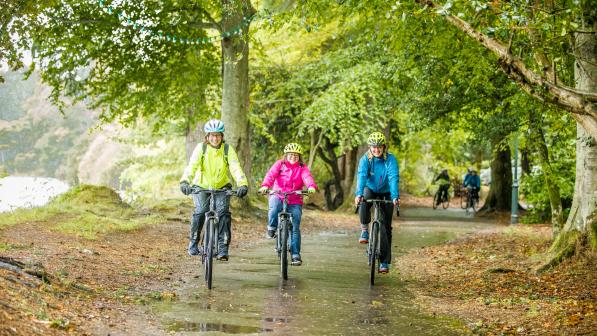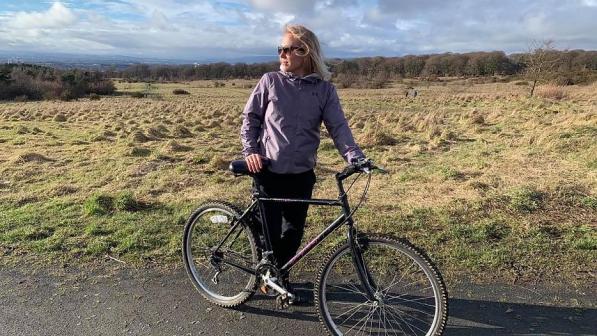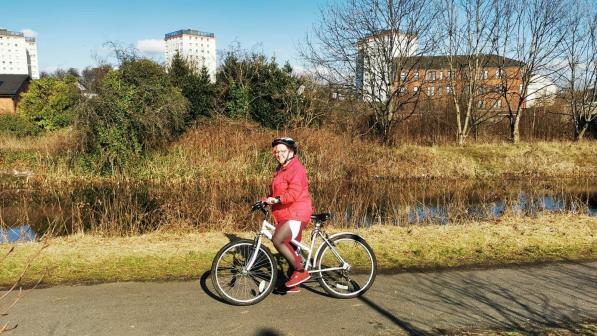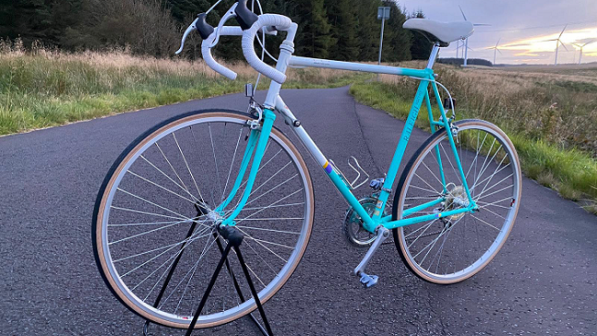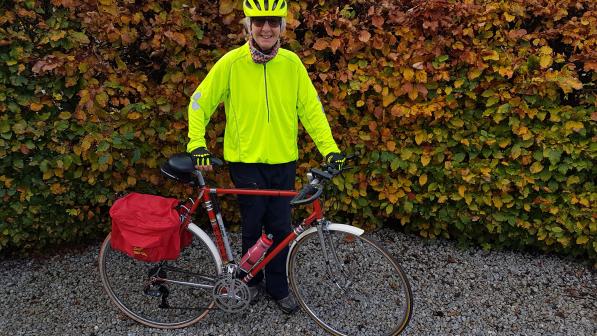Glasgow refugees back on two wheels thanks to Scotland Cycle Repair Scheme

When Rose Sehakizinka of the Isaro Community Initiative heard about the Scotland Cycle Repair Scheme, she was keen to promote it to the New Scots her organisation works with in the Clydebank area. With money tight, many of them jumped at the chance of bringing their bikes back into use.
The scheme, which is funded by the Scottish Government and delivered by Cycling UK, provides up to £50 of free servicing and repairs to people who couldn’t otherwise afford it, at over 330 participating bike shops across Scotland.
Rose said: “Some people told us that their bikes were laying there waiting to be dumped as they did not know where and how to get them repaired at an affordable cost. They also stated they had no means to buy new bikes.”
With public transport options limited due to the coronavirus pandemic, the group needed access to these bikes more than ever.
“The frequency of train and buses has been reduced which makes it difficult for people to make their essentials journeys. People would prefer to cycle if they can, to reduce the risk of catching the virus while using crowded buses and trains.”
The next issue was how to get the 20 bikes to the repair centres, in this case Decathlon at Braehead and Cycleform in Clydebank. Recognising an opportunity to get people cycling again, Isaro decided to help by hiring a van to collect and return the bikes.
One of the people to benefit was Pierre Biziga, 51, who came to Scotland seven years ago. Pierre bought a pre-owned bike in 2018 which he used for a year but was unable to repair it when it developed issues.
I’d like to thank everyone who was involved in getting my bike repaired. It is really a great service to the community
Pierre Biziga, Scotland Cycle Repair Scheme beneficiary
Pierre is delighted to be back cycling, enjoying the opportunity to exercise while getting around the city and surrounding area.
“I’d like to thank everyone who was involved in getting my bike repaired. It is really a great service to the community.
“I use it for keeping myself fit but also for going shopping, to go to appointments. I also use it to go work when it is not raining. It is fun and healthy.”
Perhaps most importantly, cycling offers Pierre a low-cost alternative to the bus, at a time when many people are avoiding public transport.
“I was happy to get my bike repaired because now I can use it for some of my journeys without having to wait for the bus. It is also a safer way for me to travel and avoid overcrowded buses so it can reduce the risk of catching coronavirus.”
In his home country of Senegal, cycling is a way of life, according to Pierre.
“We cycle a lot in my country. There are very few buses you can use to travel from an area to another so a lot of people cycle for hours to go to work, to go shopping and even to take relatives to hospitals.”

